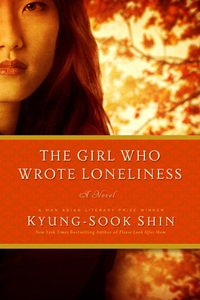Take a photo of a barcode or cover
slow-paced
emotional
reflective
sad
slow-paced
Plot or Character Driven:
Character
Strong character development:
Yes
Loveable characters:
Yes
Diverse cast of characters:
Yes
Flaws of characters a main focus:
Complicated
Moderate: Death
Minor: Sexual assault, Sexual harassment
challenging
emotional
informative
reflective
sad
slow-paced
Plot or Character Driven:
Plot
Strong character development:
Complicated
Loveable characters:
Yes
Diverse cast of characters:
N/A
Flaws of characters a main focus:
No
This book delves into South Korea's industrial past through the memories of a writer. As a young girl, the narrator dreamed of becoming a writer, and her writing forces her to confront her past as a factory worker in Seoul in the 1970s. As one of the most challenging periods of her life, the narrator struggles to recall this period and the stories of the countless women working in wretched conditions and striving to improve their own lives and the quality of life for factory workers.
This book is incredibly slow, but also highly informative. It offers quite a lot of insight into a period of time not often brought up, particularly in the Western world. I appreciated the insight this novel provided and helped me expand my knowledge on Korean culture and history.
This is a good read for history fans, but also fans of feminist literature!
This book is incredibly slow, but also highly informative. It offers quite a lot of insight into a period of time not often brought up, particularly in the Western world. I appreciated the insight this novel provided and helped me expand my knowledge on Korean culture and history.
This is a good read for history fans, but also fans of feminist literature!
Moderate: Death, Blood, Vomit, Injury/Injury detail
Minor: Gun violence
challenging
dark
emotional
hopeful
mysterious
reflective
sad
medium-paced
Plot or Character Driven:
Character
Strong character development:
Complicated
Loveable characters:
Yes
Diverse cast of characters:
Complicated
Graphic: Suicide
Minor: Self harm
emotional
reflective
sad
medium-paced
Plot or Character Driven:
Character
Strong character development:
Yes
Loveable characters:
Complicated
Diverse cast of characters:
No
Flaws of characters a main focus:
Complicated
challenging
emotional
sad
medium-paced
Plot or Character Driven:
Character
Strong character development:
Yes
Loveable characters:
Yes
Diverse cast of characters:
N/A
Flaws of characters a main focus:
N/A
On a scale of cotton candy to Brussels sprouts, The Girl Who Wrote Loneliness by Kyung-Sook Shin is a pint of Ben & Jerry's Coconut 7 Layer Bar ice cream. Creamy with nuts, fudge swirl, caramel, and graham cracker, every bite offers something different. You'll spoon your way to the bottom of the pint before you know it.
A teenage girl arrives in Seoul to begin working at a factory and pursue her dream of education to become a writer. Set in Korea’s industrial sweatshops of the 1970s, this story unravels with an up-close look at family dynamics, dream chasing, and exploitation. As the story flips between past and present, the reader is offered a full picture of the life of the character from teenage years to adulthood and the processing of her life.
I admit that I chose this book solely based on the title. I was intrigued by what the story could be for someone who "wrote loneliness," and I admit that the story often left me in a state of loneliness myself. The way that the author chose to write the story created a lot of distance between the character and the reader. This was not an easy read as it pressed you in close to the smell of humanity, but I'm glad that I took the time to listen to it on audiobook.
If you enjoy exploring the history and experiences of other cultures and countries, The Girl Who Wrote Loneliness is for you.
A teenage girl arrives in Seoul to begin working at a factory and pursue her dream of education to become a writer. Set in Korea’s industrial sweatshops of the 1970s, this story unravels with an up-close look at family dynamics, dream chasing, and exploitation. As the story flips between past and present, the reader is offered a full picture of the life of the character from teenage years to adulthood and the processing of her life.
I admit that I chose this book solely based on the title. I was intrigued by what the story could be for someone who "wrote loneliness," and I admit that the story often left me in a state of loneliness myself. The way that the author chose to write the story created a lot of distance between the character and the reader. This was not an easy read as it pressed you in close to the smell of humanity, but I'm glad that I took the time to listen to it on audiobook.
If you enjoy exploring the history and experiences of other cultures and countries, The Girl Who Wrote Loneliness is for you.
dark
emotional
reflective
sad
slow-paced
Plot or Character Driven:
A mix
Strong character development:
Yes
Loveable characters:
Yes
Diverse cast of characters:
Complicated
Flaws of characters a main focus:
Complicated
Moderate: Police brutality, Grief
Minor: Sexual assault, Suicide, Torture, Vomit, Sexual harassment, Injury/Injury detail






